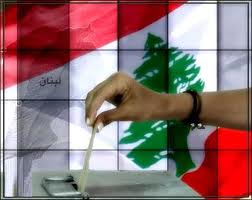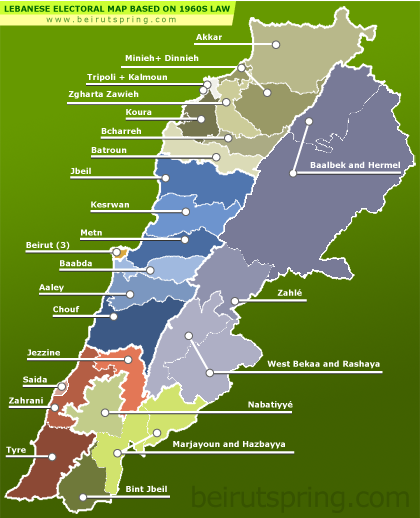 The Maronite bishops met Friday and decided to reject the current electoral law, which is based on a winner-takes-all system that was established in 1960.
The Maronite bishops met Friday and decided to reject the current electoral law, which is based on a winner-takes-all system that was established in 1960.
The bishops “reject the current electoral law which is known as the 1960 law because it does not ensure true representation,” said a statement issued at the end of the monthly meeting which was headed by Maronite Patriach Beshara Rai.
“Therefore, it is imperative that a new law should be established that ensures true and fair representation for all components of the Lebanese society and grants expatriates the right to vote,” added the bishops, who stressed the need to hold the 2013 parliamentary elections on time.
“The Lebanese people – living in the country or abroad – are looking forward with hope that Parliament will establish a new electoral law that would ensure proper representation,” the statement said.
Lebanon’s Cabinet approved earlier in August a new electoral draft law that called for proportional representation and divided the country into 13 districts.
Lebanon was divided into the following electoral districts:
Beirut 2, south Lebanon 2, Bekaa 3, north Lebanon 3 , Mount Lebanon 3.
The new electoral law was approved by the majority of ministers, including the FPM ministers . The ministers that represent Progressive Socialist Party leader MP Walid Jumblatt’s bloc voted against it.
MP Alain Aoun along with FPM MP Neemtallah Abi Nasr also submitted another draft electoral law . This is the so called “Greek Orthodox gathering proposal” which calls on each sect in Lebanon to vote only for its candidate in the elections based on proportional representation and one electoral district for the whole country .
March 14 MPs Georges Adwan, Boutros Harb and Sami Gemayel submitted a draft electoral law based on 50 districts and proportional representation to the Parliament’s General Secretariat on Thursday morning, according to LBCI.
Jumblatt and his PSP MPs favor the current 1960 electoral law.
“If there was no new election law, there is the one currently present and we can hold polls based on it,” Public Works and Transportation Minister Ghazi Aridi, , a key member of Jumblatt’s parliamentary bloc, said Thursday in response to the draft proposal submitted by March 14.
 Unfair
Unfair
On the other hand Lebanese Forces leader Samir Geagea said on Friday that the 1960 electoral law was unfair and added that electoral laws must provide just representation.
“I hope all parties realize that the 1960 electoral law must not be used again because it is very unjust,” Geagea said during a press conference on Friday.
He added that a new electoral law must aim to be just and provide fair representation.
Geagea threw his support behind the draft submitted by March 14.
“ The draft law which March 14 Christian parties submitted on Thursday provides both aims as it grants each sect the right to elect most deputies from the same sect,” Geagea told reporter adding “He who has a better law should go ahead and present it.”
Hezbollah’s no. 2
Deputy Hezbollah leader Sheikh Naim Qassem threw his support behind the electoral law submitted by the cabinet and which is based on proportional representation, rejecting the March 14’s proposed electoral law based on small electoral districts, National News agency reported on Friday.
“We are in dire need of fair elections that offer equal chances to all parties, and that can only be achieved through the proportional representation system,” said Qassem.

Leave a Reply
You must be logged in to post a comment.